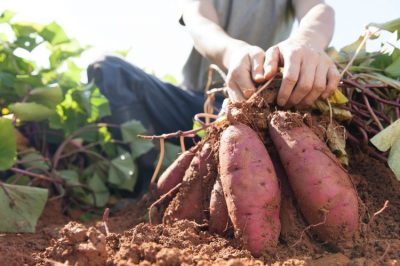Sustainable Food System

Human activity is causing environmental degradation, which is the deterioration of the environment through depletion of resources such as air, water and soil; the destruction of ecosystems; habitat destruction; the extinction of wildlife; and pollution.
A truly sustainable food system must start with a shift from an Animal to a Plant economy. This will demand a paradigm shift in the social view of our relationship to the environment and a clear understanding of the benefits of early action and the dangers of moving slowly. The economic, ecological and social impact of this change is essential.
Education is the key factor. The most prominent public attitudes regarding environmental health are focused on the role of governments, science and industry to provide solutions. Solutions generated from the top down, no matter how well intended, are needed but are too slow to deal with the magnitude of problem. Direct action from consumers can produce the most dramatic and sustainable results. The issue of sustainability is not a mystery and it does not require new studies, it requires grass roots action.
A sustainable food system would include:
- Focus on public education about the health and ecological importance of a plant-based diet.
- A philosophy of soil renewal through organic agriculture and natural pest control and encourage biodiversity through re-wilding.
- Local and regional food consumption over foods that are shipped great distances.
- An adequate supply of nutritious food to secure needs of an ever-growing world population.
- A clear message of individual and social health benefits as well as “big picture” messages. Self-interest is a major driver in human behaviour.
We are in this together
It only takes one grain of sand to turn the tide. That one grain of sand is each and every one of us. We can make a tremendous difference and minimize our impact on land and water resources by referring to four distinct areas: human, social, economic and environmental - known as the four pillars of sustainability. It’s simple in its essence that a sustainable world would meet the needs of everyone. We should all be able to meet our own needs without compromising the ability of future generations to meet their own needs. We are depleting our natural resources and education is the only way to reverse this downward spiral.
Our human ecology project
The issue of ecology is a very important one in terms of human nutrition because human ecology really describes what our relationship is with the planet that we live on. We need to consider the entire food system from production to consumption and understand each of its components, their relationships, and their immediate and long-term impacts. Agriculture should be recognized as a solution to biodiversity loss, climate change and pollution.
Industrial agriculture consumes a whopping 70 percent of all freshwater on earth and also causes approximately 80 percent of forest loss. It is one of the most unsustainable practices of modern civilization. Runoff from fertilisers pollutes lakes, rivers, and coastal ecosystems. Our current global food system is quoted as being responsible for one-third of global greenhouse emissions (but as high as 51%) and it completely depends on fossil fuels for transportation and synthetic fertilizers and pesticides. Factory farming is not just cruel but is a threat to all life on the planet.
There is nothing new under the sun. A wholefood plant-based diet is the most sustainable food system. Please join Bill and I in service for a healthy world for humans and nonhuman alike. Thank you.
In good health


